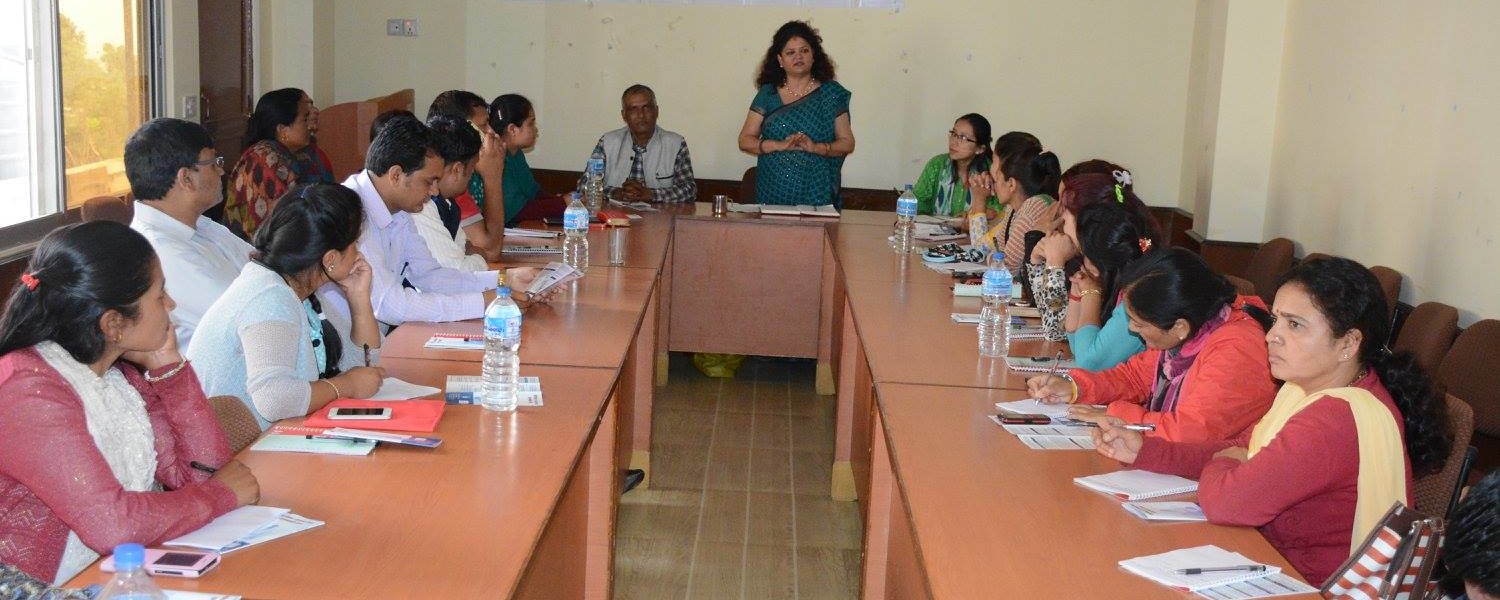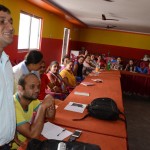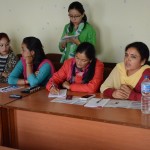
According to the Nepal Government’s Status Report on Labour Migration (2013-2014), 4.76 % women from Makwanpur district and 2.77 % women from Dolakha district had migrated for foreign employment. Makwanpur and Dolakha district fall into the top ten districts for female foreign labour migrants.
Therefore, Media Advocacy Group (MAG) with funding support from South Asia Women’s Fund (SAWF), organized district level workshops at Hetauda of Makwanpur district and at Charikot of Dolakha district on 16th June and 19th June 2016 respectively to identify the issue related to foreign employment for women and status of RTI for promoting safety of women migrant workers in the district.
The main objectives of the workshops were;
1. To provide participants with conceptual clarity about the RTI Act 2007 and how it can be utilized as an effective tool in promoting safe migration.
2. To bridge the gap between the service provider and the service user and make the service provider accountable for informing citizens about the state’s legislation on migration.
3. To aware aspirant women migrants on seeking official or legal information using the RTI Act.
4. To identify the status of local women in foreign employment and share their experiences.
There were 29 participants (Male: 11 and Female: 18) in workshop at Hetauda and 36 participants (Male: 13┬Ā and Female: 23) ┬Āin workshop at Charikot. The participants were from┬ĀCivil society organization, media, women led organization, youth clubs, returnee migrants, family members of migrants workers, aspirant women migrants and girls and members from mother groups.
During workshop, Ms. Babita Basnet, President of MAG, gave presentation on Right to Information Act and its linkage for ensuring safety of women migrants. Speaking of importance of RTI, she said RTI can be used to obtain relevant information from public agencies and shared how RTI based Journalism are being practiced in India citing various examples. She then explained about steps of obtaining information from public agencies and mentioned that aspirant migrant workers who are opting for foreign employment can use RTI act to obtain relevant information regarding migration process. She also stressed the need of access of migrant workers to right information at right time to ensure their safety.
Some of the suggestions drawn from the open floor discussion during workshop were as follows:
- Participants shared that the Nepali migrants perform ‘low-wage’, ‘low-skill’ and low-status jobs in destination countries. Lack of skills including language skill makes them vulnerable to exploitation in destination countries.
- Women migrating to destination countries via undocumented channels are more vulnerable towards exploitation.
- Women encounter greater difficulties than men in accessing legal migration channels because of restriction on freedom of movement, lack of reliable and gender-responsive information or documented labor migration.
- Women encounter sex and gender based discrimination and abuse throughout the migration cycle (pre-departure, in transit, on-site in destination countries and on return). Hence, it is necessary to change the perception of society towards women migrants, returnee migrants and women/ families left behind.
- Most of the returnee migrants shared that employers or agents can legally possess their passports or other travel documents, which increases the vulnerability to abuse and exploitation in workplace.
- Government bans or restriction on women’s mobility place women migrant workers at particular risk of compelling them to use undocumented channels for foreign migration and of trafficking and smuggling.
- Government should take necessary measures to prevent and address undocumented migration of women and girls.
- Government should reform and enforce laws and policies to fully protect and empower migrant workers especially women.
- Orientation on safe migration should be conducted for migrant workers, both men and women, at district level and at grass hood level.
- To promote safe migration, migrants should have access to relevant information and effective implementation of RTI Act can ensure this.
- There is an urgent need to amend the Foreign Employment Act of Nepal to ensure migrant’s rights and right to mobility of women and also to promote safe migration.
- Women at grass-hood level should be oriented on Right to Information Act and its use for their safety.
Through these district workshops, on the one hand, the service providers were made aware and accountable about the existing legislation on foreign employment , while on the other hand, the potential women migrant workers and other beneficiaries were made to seek any official or legal information about their ongoing process of migration right from the initial stage of making passport to their final processing using RTI act. These districts level interactions brought about the issues of women migrant workers and provided the platform to discuss the prospect of foreign employment for women. The suggestions drawn from these workshops will be shared with concerned government and non-government stakeholders at the national level workshop.
Recent
News and Events
Articles Published on Online Portals
Óż¬ÓźŹÓż░Óż¦ÓżŠÓż©Óż«Óż©ÓźŹÓżżÓźŹÓż░ÓźĆÓż▓ÓżŠÓżł Ó
Published On:ÓżśÓż¤Óż©ÓżŠ Óż░ ÓżĄÓż┐ÓżÜÓżŠÓż░
Óż░ÓżŠÓżĘÓźŹÓż¤ÓźŹÓż░Óż¬ÓżżÓż┐ ÓżĢÓżŠÓż░ÓźŹÓż»ÓżŠÓ
Published On:ÓżśÓż¤Óż©ÓżŠ Óż░ ÓżĄÓż┐ÓżÜÓżŠÓż░
ÓżĖÓż«ÓźŹÓż¼Óż©ÓźŹÓż¦ÓżĄÓż┐ÓżÜÓźŹÓżøÓźćÓż”Óż«ÓżŠ Ó
Published On:ÓżśÓż¤Óż©ÓżŠ Óż░ ÓżĄÓż┐ÓżÜÓżŠÓż░
women in media
Published On:wow Magazine
‘ÓżżÓźćÓż▓ ÓżŁÓż┐ÓżĖÓżŠ’ Óż▓ÓżŠÓżŚÓźŹÓ
Published On:ÓżśÓż¤Óż©ÓżŠ Óż░ ÓżĄÓż┐ÓżÜÓżŠÓż░-Óż¼Óż¼Óż┐ÓżżÓżŠ Óż¼ÓżĖÓźŹÓż©ÓźćÓżż



